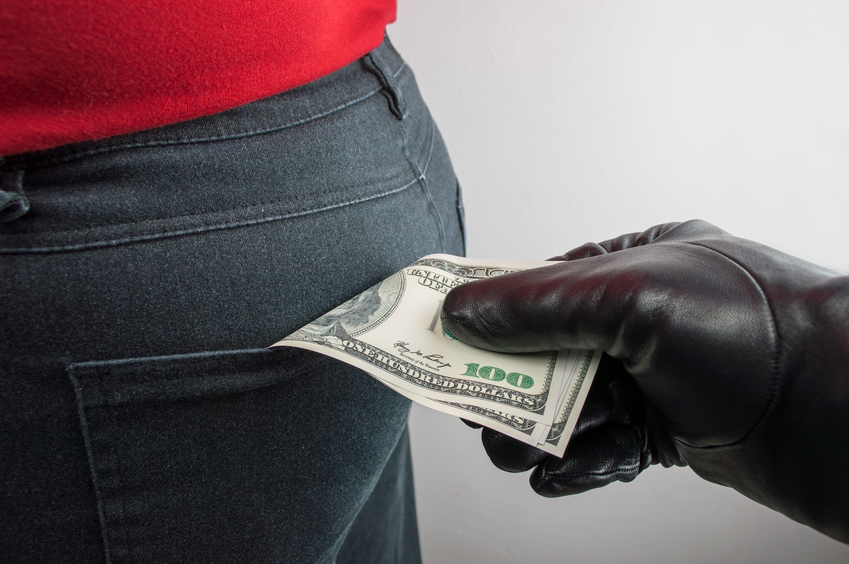
When we’re kids, the world of grown up finance seems distant and confusing. Bank accounts and mortgages are words we didn’t understand. Our only experience with money was the cash we carried to school, or the allowance our parents may have doled out to us every month or so. We might have lost a quarter while playing, or given up our lunch money to the bully at recess. Whatever it was, grown up money habits seemed safe and secure. We figured that once we got to be adults ourselves, we could lock away our savings in an impenetrable vault and live without worry that someone else might take it.
The thing is, though, people do take your money. Today more than ever, regular people are vulnerable to the predations of individuals and corporations who make it their business to steal or skim as many dollars as they can get access to. It’s not too different from the schoolyard bully situation, though today’s ripoff artists like to hide behind suits and expensive desks, or even cloak themselves in digital anonymity. For people looking to make their money go farther and last longer, it’s imperative to stop these characters before they start. It’s almost always easier to prevent theft than it is to recover funds. Here are some things to keep in mind.
- PPI and Other Unwanted Subscriptions. PPI, or Payment Protection Insurance, is a fine financial product that was unwittingly foisted on many borrowers in England over the past couple of decades. It’s not that the insurance was bad. Most people just didn’t want it, and didn’t know that somewhere buried in their dozens of loan application documents was a contract they were signing for the coverage. Today there are many class action lawsuits in motion, and the PPI deadline is quickly approaching. There are examples of many similar ripoffs, but sometimes we’re our own worst enemies. Ever subscribed to entertainment or monthly shipments from Amazon or other providers? It’s easy to forget about these services and just let our funds slip away monthly.
- Encryption and Anonymity. If I were to ask you which online passwords were the most important, which would you identify. No, not Facebook (though it’s not totally insignificant). No, not your HBO NOW account. Email and Banking? Yes! Totally! It’s getting easier than ever for hackers to crack weak passwords. When it comes to email, this is the gateway to all of the rest of the information available about you online. Most of us have our other passwords mentioned somewhere in our emails, so hackers often find financial passwords and move on from there. If they can get through a bank password without cracking your email, all the easier. Try Google 2-Step Authentication for your most important web accounts, and request that your institutions support 2-Step Authentication if they do not already.
It’s harder than ever to get through life without someone picking your pockets. In the digital world, it’s just like the old playground bully situation. Keep your stuff safe by paying attention and preparing for the worst. You might be able to keep your money to yourself.
Leave a Reply